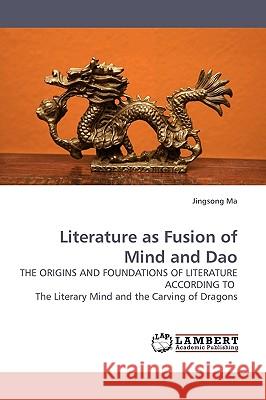Literature as Fusion of Mind and Dao » książka
Literature as Fusion of Mind and Dao
ISBN-13: 9783838311715 / Angielski / Miękka / 2010 / 248 str.
This book is on the foundations of Liu Xie's (c.465-522) literary thought. It focuses on what Liu Xie calls the "pivot of literature" the question raised in the first five chapters of The Literary Mind and the Carving of Dragons, concerning its origins and foundation. Dao (the great way of the cosmos), the Confucian Classics, and Buddhism are intricately linked in Liu Xie's literary theory. Liu Xie contends that the natural Dao is the ontological foundation of literature; he takes the Classics to be the direct source of all literary genres and the paradigm of literary excellence; and he attributes decorative diction, imagination, and emotional expression to the influence of apocryphal writings and Songs of Chu. By including these in the "pivot of literature," he defines a conception of "pure literature" and advocates its development. Thus the "pivot of literature" sets up the framework and basic principles for a system of literary thought, encompassing the ontological foundation of literature, its origins, the characteristic features of "pure literature," and the potential for literary change, opening the way for the subsequent development of Chinese literature.
This book is on the foundations of Liu Xies (c.465-522) literary thought. It focuses on what Liu Xie calls the "pivot of literature": the question raised in the first five chapters of The Literary Mind and the Carving of Dragons, concerning its origins and foundation. Dao (the great way of the cosmos), the Confucian Classics, and Buddhism are intricately linked in Liu Xies literary theory. Liu Xie contends that the natural Dao is the ontological foundation of literature; he takes the Classics to be the direct source of all literary genres and the paradigm of literary excellence; and he attributes decorative diction, imagination, and emotional expression to the influence of apocryphal writings and Songs of Chu. By including these in the "pivot of literature", he defines a conception of "pure literature" and advocates its development. Thus the "pivot of literature" sets up the framework and basic principles for a system of literary thought, encompassing the ontological foundation of literature, its origins, the characteristic features of "pure literature," and the potential for literary change, opening the way for the subsequent development of Chinese literature.











